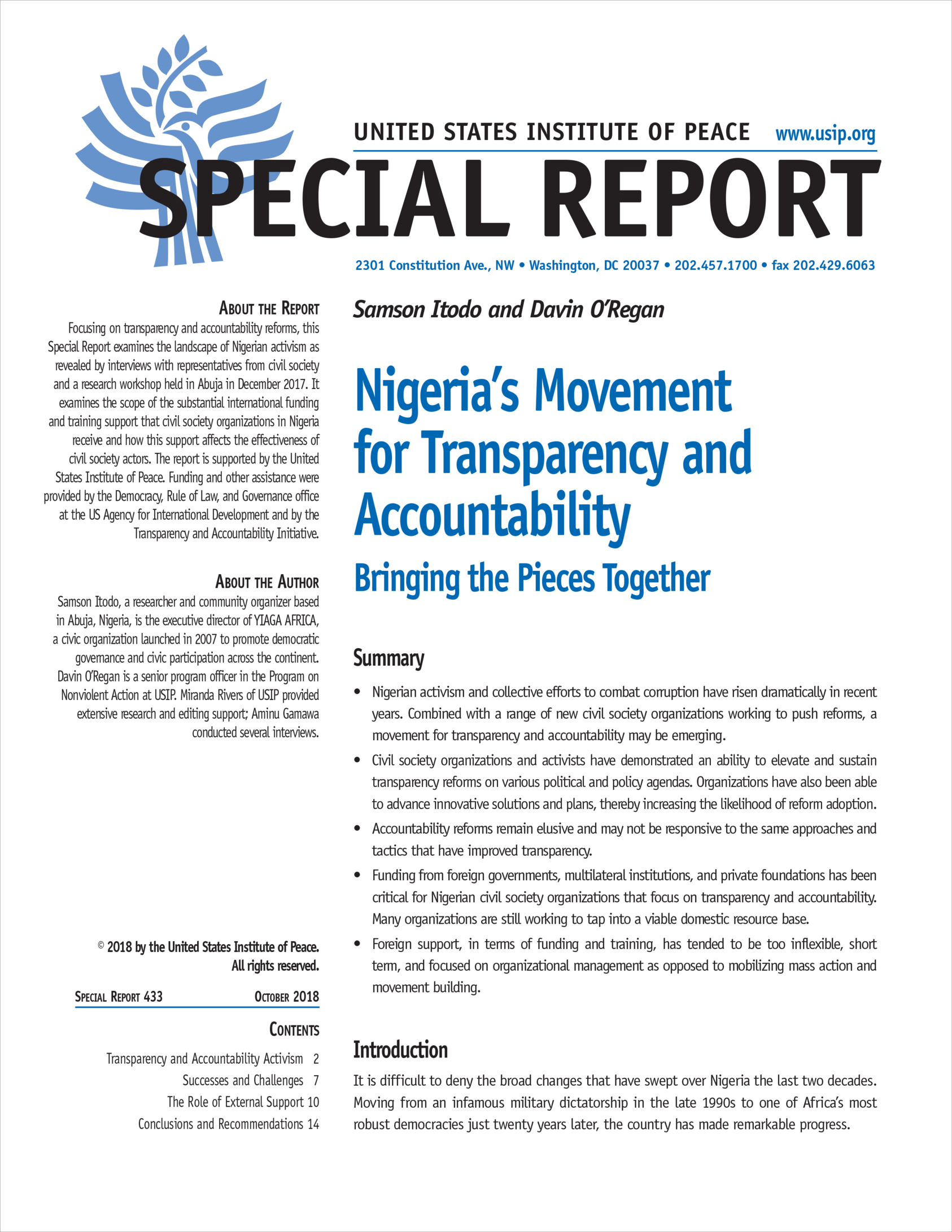Bringing the Pieces Together
Since the demise of its military dictatorship in the late 1990s, Nigeria has made remarkable democratic progress. Still, widespread corruption bedevils the country—which in many respects presents its biggest policy challenge and its biggest threat to stability and development. Drawing on a workshop held in Abuja as well as on in-depth interviews with civil society leaders and others, this report analyzes the undercelebrated but unique contributions of an emerging movement for transparency and accountability, the scope of international funding and training, and how this support affects the effectiveness of civil society efforts.
Summary
- Nigerian activism and collective efforts to combat corruption have risen dramatically in recent years. Combined with a range of new civil society organizations working to push reforms, a movement for transparency and accountability may be emerging.
- Civil society organizations and activists have demonstrated an ability to elevate and sustain transparency reforms on various political and policy agendas. Organizations have also been able to advance innovative solutions and plans, thereby increasing the likelihood of reform adoption.
- Accountability reforms remain elusive and may not be responsive to the same approaches and tactics that have improved transparency.
- Funding from foreign governments, multilateral institutions, and private foundations has been critical for Nigerian civil society organizations that focus on transparency and accountability. Many organizations are still working to tap into a viable domestic resource base.
- Foreign support, in terms of funding and training, has tended to be too inflexible, short term, and focused on organizational management as opposed to mobilizing mass action and movement building.
About the Report
Focusing on transparency and accountability reforms, this Special Report examines the landscape of Nigerian activism as revealed by interviews with representatives from civil society and a research workshop held in Abuja in December 2017. It examines the scope of the substantial international funding and training support that civil society organizations in Nigeria receive and how this support affects the effectiveness of civil society actors. The report is supported by the United States Institute of Peace. Funding and other assistance were provided by the Democracy, Human Rights, and Governance office at the US Agency for International Development and by the Transparency and Accountability Initiative.
About the Author
Samson Itodo, a researcher and community organizer based in Abuja, Nigeria, is the executive director of YIAGA AFRICA, a civic organization launched in 2007 to promote democratic governance and civic participation across the continent. Davin O’Regan is a senior program officer in the Program on Nonviolent Action at USIP. Miranda Rivers of USIP provided extensive research and editing support; Aminu Gamawa conducted several interviews.
